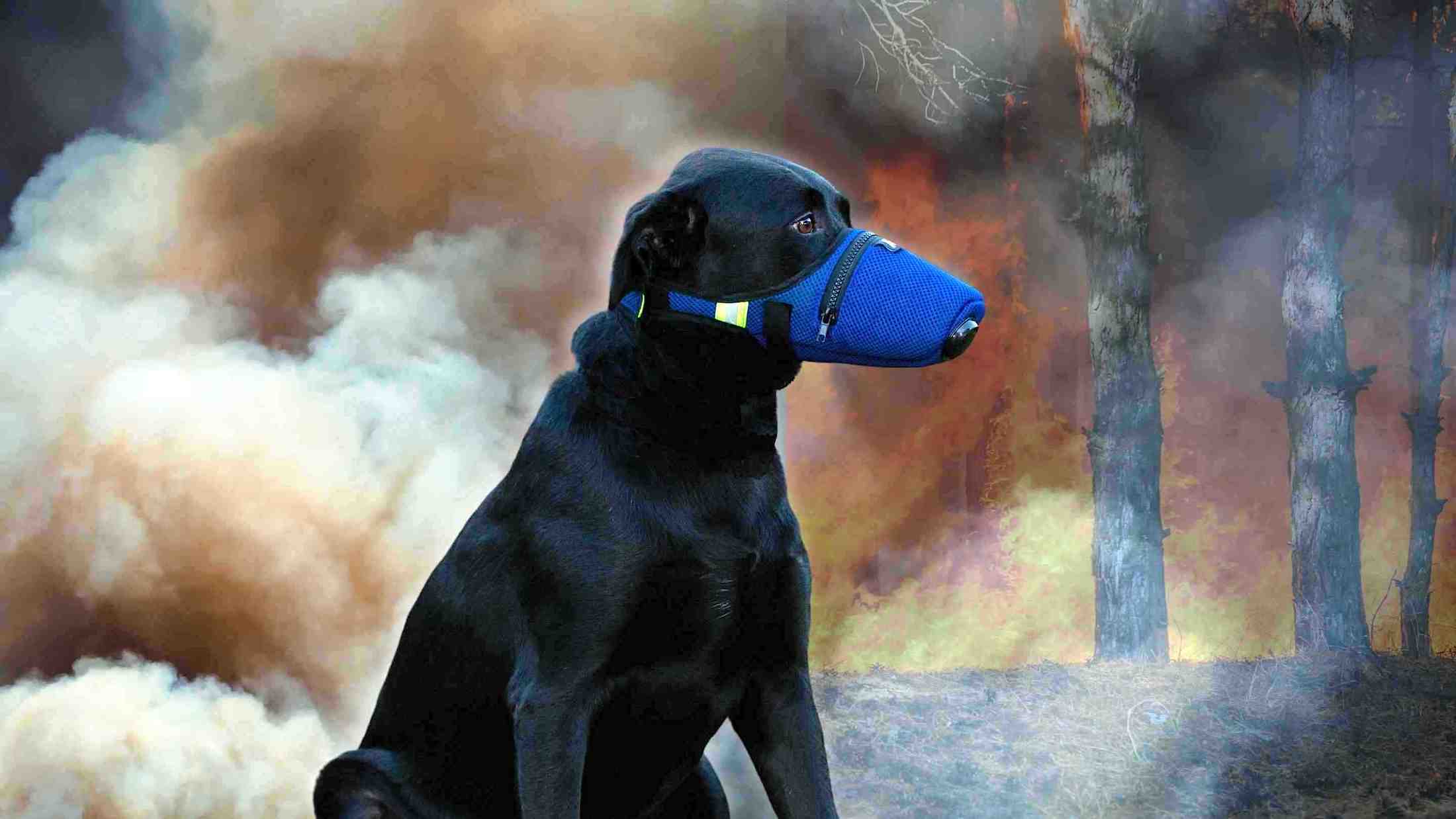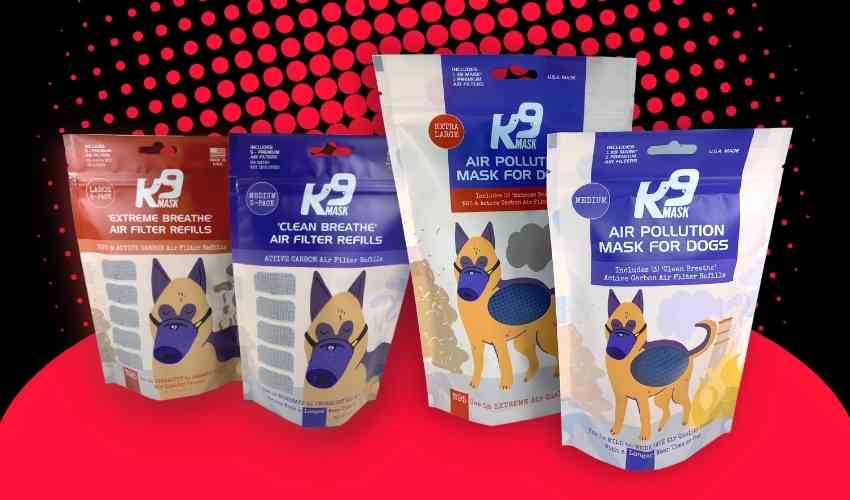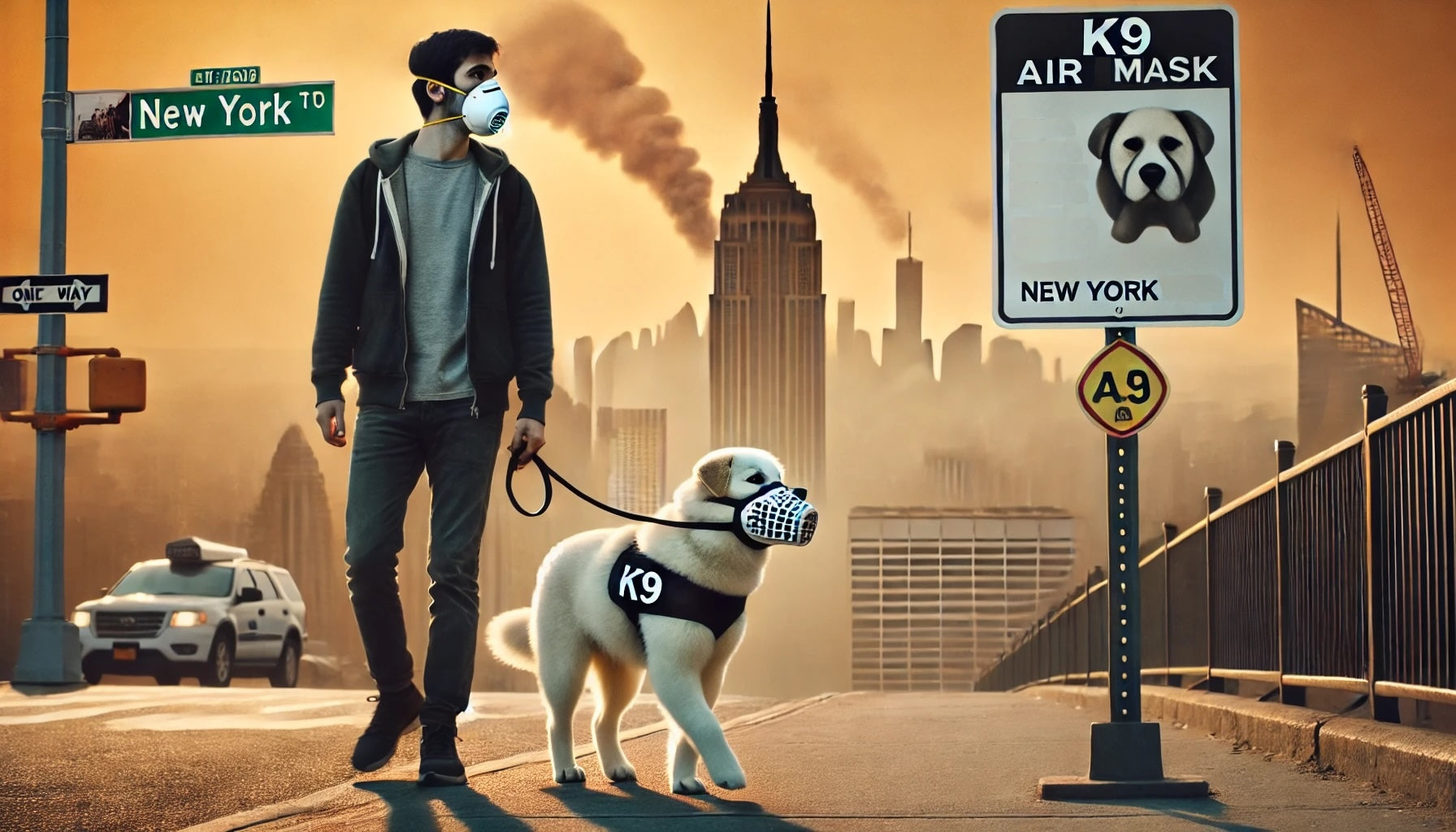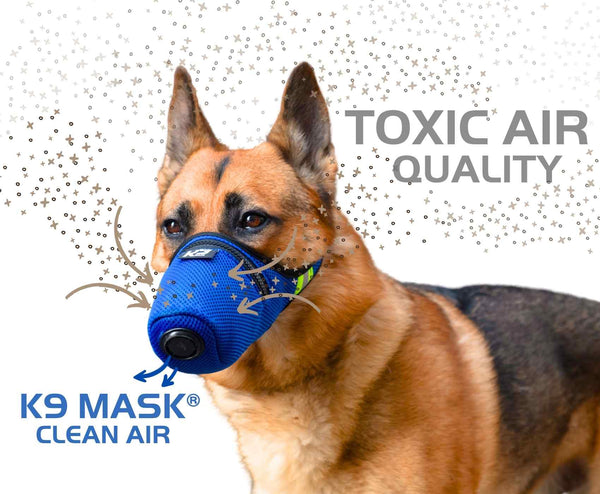The wildfire crisis in New York and New Jersey, including the Jennings Creek Fire, has created hazardous air quality, impacting millions of residents and their pets. The smoke from these fires carries tiny, harmful particulates that can affect dogs’ respiratory systems, especially in brachycephalic breeds or older animals with existing conditions.

Why Smoke is Dangerous for Dogs
Wildfire smoke contains particulate matter (PM2.5) that penetrates deep into the lungs, causing symptoms like coughing, lethargy, difficulty breathing, and irritated eyes. Prolonged exposure may lead to chronic issues, including respiratory or cardiovascular damage.
How to Protect Your Dog
- Limit Outdoor Exposure:
- Avoid walks during high AQI (Air Quality Index) days. Use air quality monitoring apps to check local conditions.
- Use Protective Gear:
- Equip your dog with a K9 Mask®, which filters out harmful particulates while allowing for normal breathing. This mask is specifically designed to fit dogs comfortably, ensuring safety without distress.
- Ensure Indoor Air Quality:
- Keep windows closed and use HEPA filters indoors to reduce smoke infiltration. Create a designated clean air room if possible.
- Hydration and Monitoring:
- Ensure your pet stays hydrated, as water helps maintain airway moisture. Watch for symptoms of smoke exposure, such as coughing, wheezing, or fatigue, and consult a veterinarian if these occur.
The Role of K9 Mask®
K9 Mask® products are designed with advanced filtration systems to reduce your dog’s exposure to pollutants like wildfire smoke. These masks provide a practical solution for outdoor excursions when avoiding smoke entirely isn't feasible.
Stay Informed
Track local wildfires and air quality updates through reliable resources like AirNow and weather services. By proactively managing your dog’s environment and health, you can reduce risks during wildfire events.
Learn more about how to protect your dog at K9Mask.com and give your furry friend the care they need in challenging times.















